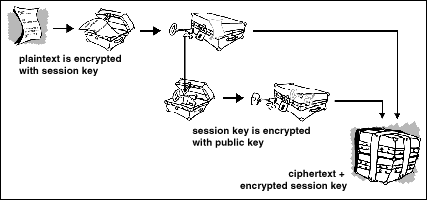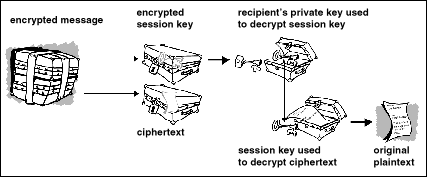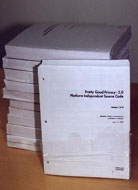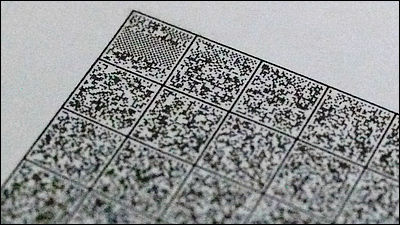A magnificent project 'PG Pi scanning project' that legally exported 12 books of 6000 pages of encryption software source code

By Matt Cavanagh
There are various types of encryption software used when sending emails and files that contain information that you absolutely do not want others to read, and among the many encryption software, PGP (Pretty Good Privacy) encrypts emails. It is software called. PGP is currently available in English, German and Japanese versions and is internationally recognized for use, but exports outside of PGP are legal until the United States permits exports of PGP except in some countries in 1999. It was forbidden in Japan, and PGP was not available outside the United States. Meanwhile, the 'PGPi scanning project ' is a project launched by volunteers who want to legally export and release PGP outside the United States.
The PGPi scanning project
http://www.pgpi.didisoft.com/pgpi/project/scanning/
To briefly explain how the encryption software PGP works, the email sender encrypts the email he wants to send with the session key (disposable private key) issued by PGP, and this encrypted email is cipher text (encrypted text). Is called. When the email is encrypted, the session key is also encrypted and the encrypted session key is delivered to the email recipient along with the cipher text.

The mail recipient decrypts the session key encrypted using the private key (private key). Next, the cipher text encrypted with the decrypted session key is decrypted.

The PGPi scanning project exported a version of the international version of PGP called PGP5.0i released in 1997. At the beginning of development, the United States regarded cryptographic software as a weapon and it was illegal to export it overseas. However, exports were banned only for software stored in electronic format, so-called floppy disks and CDs, and for distribution abroad via the Internet. Phil Zimmermann , a PGP developer who really wants to export PGP abroad, noticed that paper media can be exported without touching the law.
Mr. Zimmerman started printing the source code in text format, which is the basis of PGP 5.0i, on documents, and the final printed source code was 12 books, totaling more than 6000 pages.

The PGP 5.0i, which was successfully exported from the United States, was released by more than 70 volunteers from all over Europe who spent more than 1000 hours scanning the source code, restoring it to electronic format again with OCR, and releasing it. It was.

Through this process, PGP 5.0i became the first PGP version legally approved for use outside the United States.

By Joe Strupek
Several PGPi have been released since the development of PGP5.0i, but all were exported outside the United States in the same way as PGP5.0i. Since the United States approved the export of PGP in 1999 except for some areas, the use of the American version of PGP was approved outside the country, so there was no need to develop an international version, and the last international version, PGP6. .5.1i is said to have been released by cnlab in Switzerland.
Related Posts:







